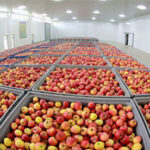In May 2017, a Pyongyang exchange group of persons with disabilities gave successful performances in London and other places in Britain, following its performance tour in Britain and France in February 2015.
Among the performers was a blind woman, Pae Ok Rim by name, who sang the world famous song Time to Say Goodbye.
When she lost her sight in her childhood, her parents worried about her future.
One evening, however, while listening to her neighbouring friend singing to her own accompaniment of the accordion, Pae told her mother, “I want to go in for music.”
Having learned about this, her school decided to train her. The music teacher dropped in on her every day to guide her, and her skill improved day by day.
One day officials of the Federation for the Protection of the Disabled visited her family and enrolled her with the federation’s art group. She further refined her skill in the group, qualifying herself for domestic and even international stages.
After seeing the performance given by the Korean artistes with disabilities, many British citizens lavished praises, saying: It is unbelievable that persons with disabilities can sing, play instruments and dance as excellently as professionals; their happy images give a glimpse of the reality of the Democratic People’s Republic of Korea which pursues advantageous policies for protecting persons with disabilities.
After a performance Pae said in a press conference: I am happy to have sung without a mistake; I owe my success to my teachers and benevolent country; though I am disabled, my dream has come true.

Kimchi-making in Korea
November is the month for making kimchi for winter in Korea.
Korean ancestors invented a good method of preserving vegetables in autumn so that they could eat them from winter to late spring the following year–it was making kimchi.
Traditionally Koreans, whenever they made kimchi for winter, used to help their neighbours and relatives–pickling and washing bok choy (Korean cabbage), making spices and carrying spiced bok choy to jars. And they offered samples of their kimchi and spices to neighbours and relatives, deepening intimacy.
According to data, Koreans take, on an average, 300-400g of kimchi per person in winter and 200-300g in summer.
Korean kimchi is renowned across the world for its high nutritive and medicinal value as well as refreshing, piquant taste and fragrance.
Korean kimchi was widely popular among players and tourists during the 26th Olympic Games in the United States in the summer of 1996.
An American health magazine introduced kimchi as one of the world’s five health foods. The magazine wrote that kimchi, a health-promoting food low in fat and rich in vitamins A and C, digestion-conducive lactic bacteria, polysaccharide and lignin, was chosen as one of the world’s five health foods.
Russia’s Tass commented that there are many haute dishes in the Democratic People’s Republic of Korea and among them kimchi, a uniquely-processed vegetable dish, is rich in vitamins and considered as a health food.
Kimchi-making practice of Korea was registered in “the Representative List of Intangible Cultural Heritage of Humanity” in the 10th session of the Intergovernmental Committee for the Safeguarding of the Intangible Cultural Heritage of the UNESCO which was held in Namibia in 2015.


